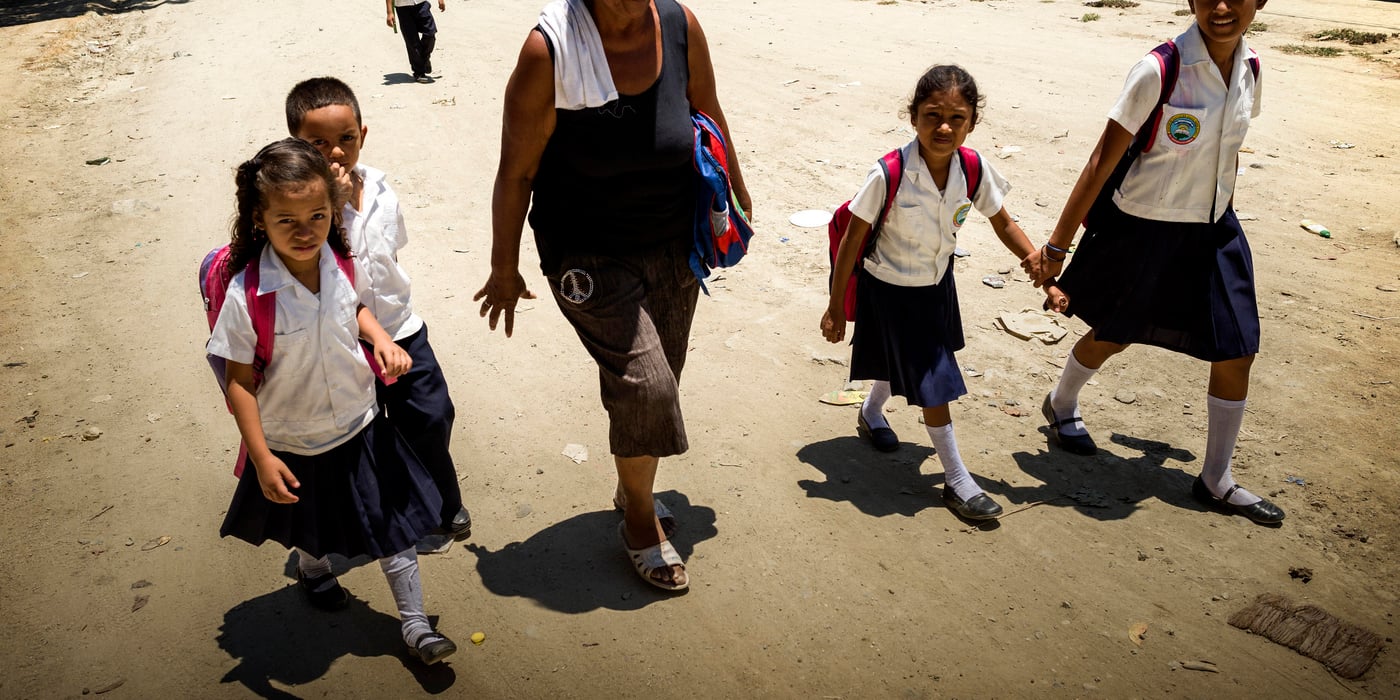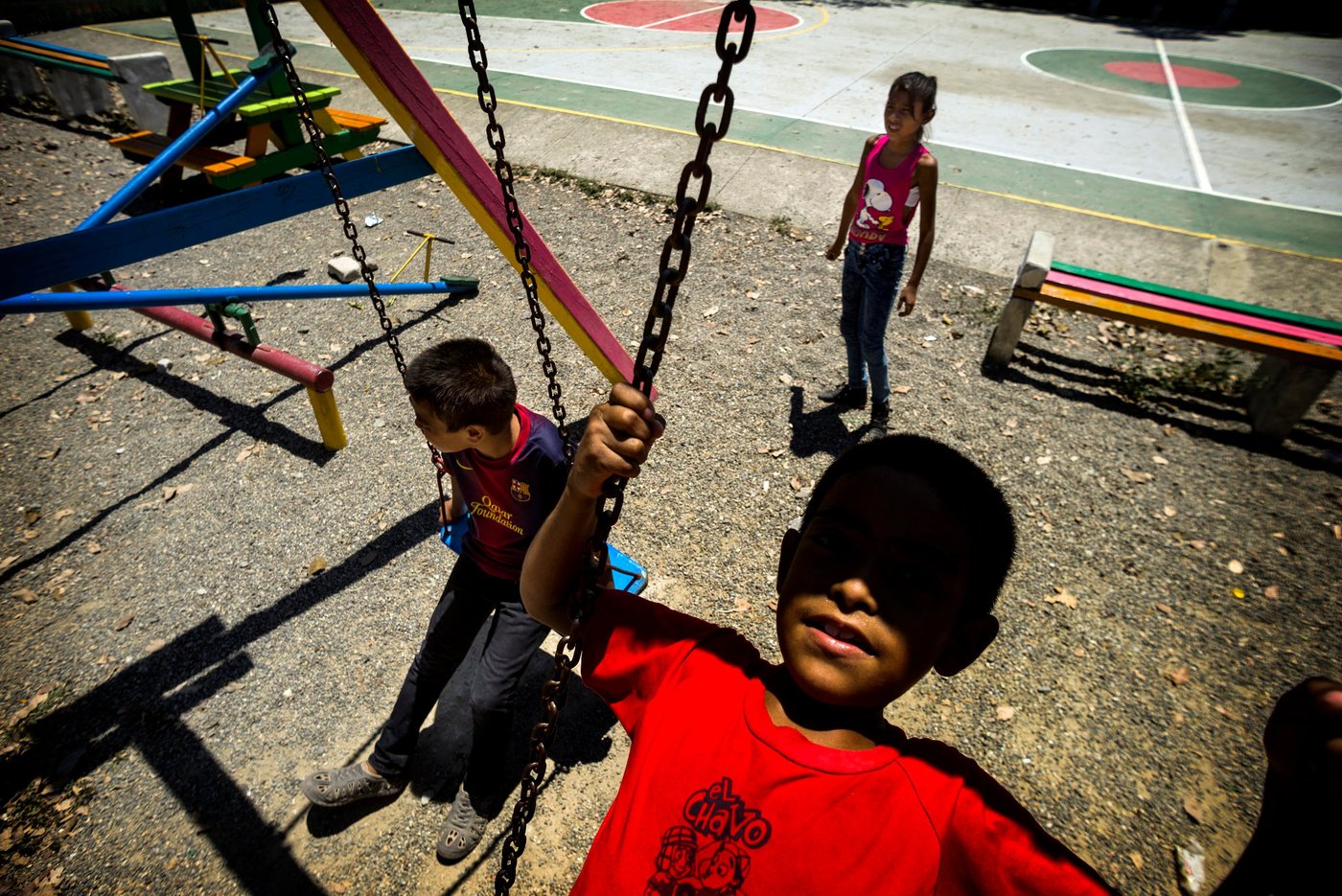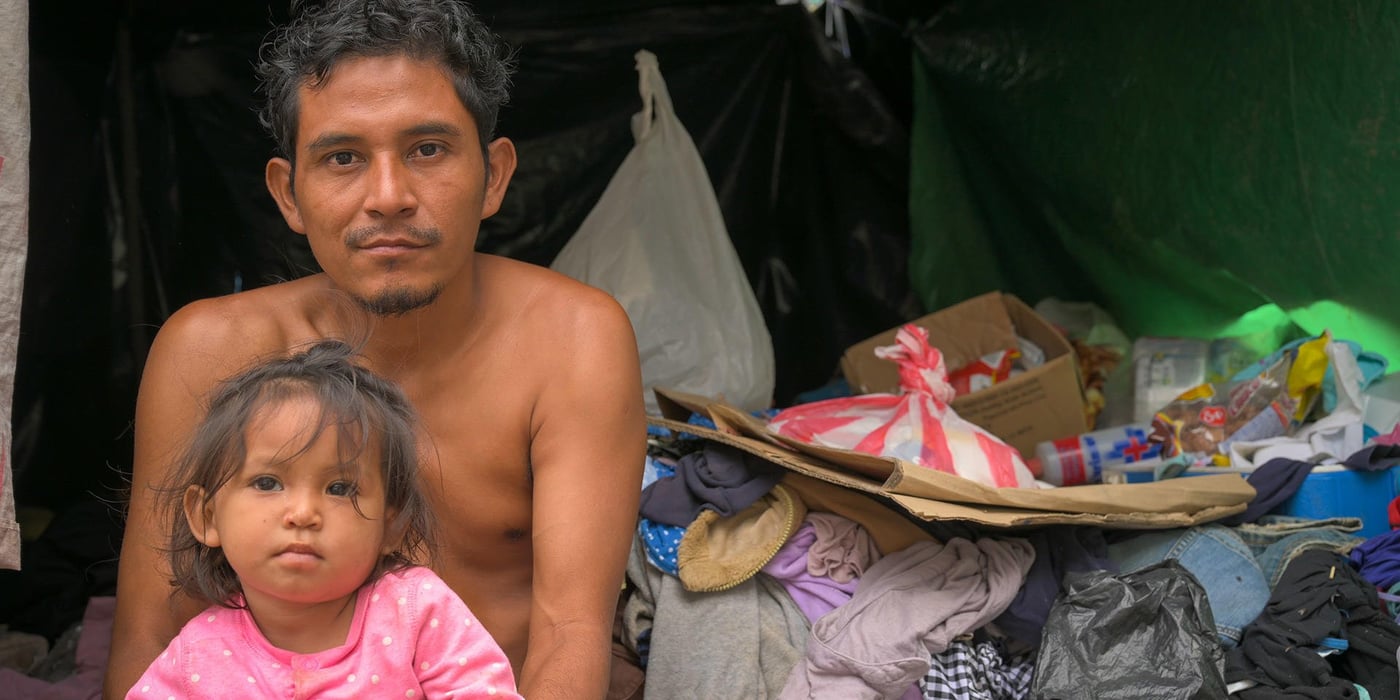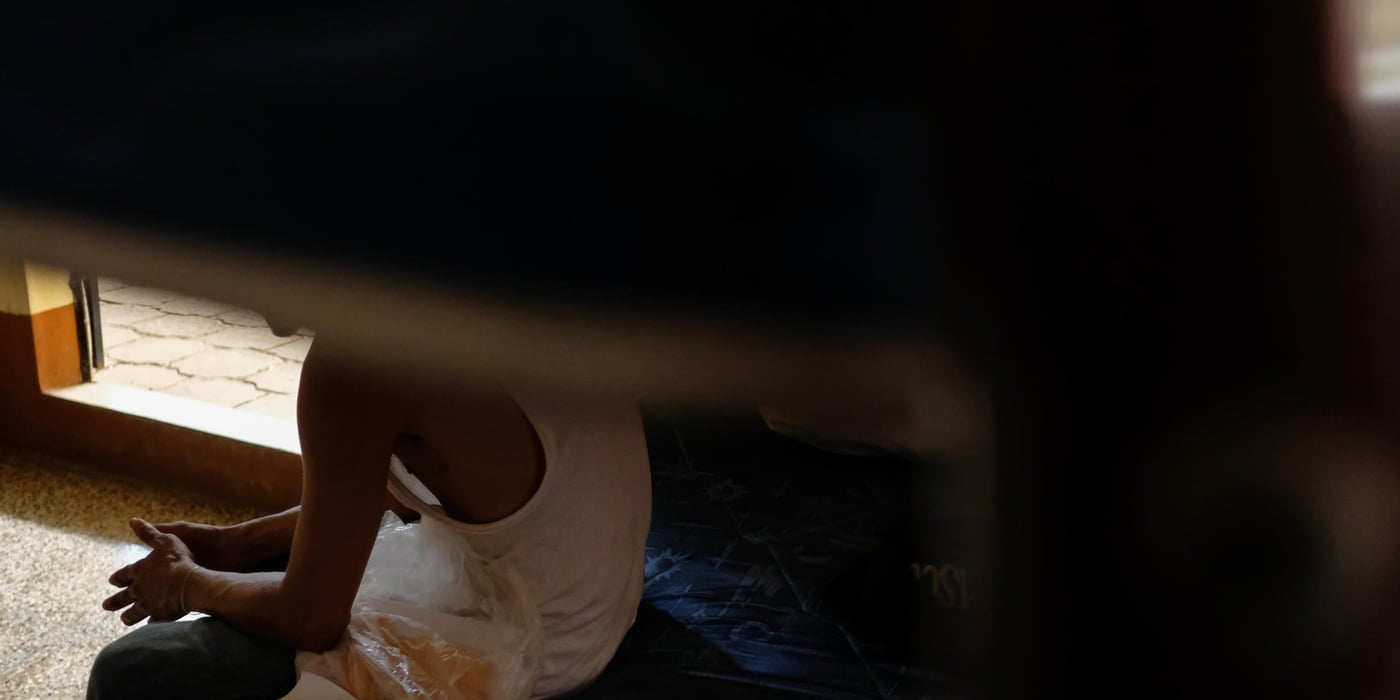
Roberto* has two brothers. "One of them was stopped [by gang members] because they wanted him to sell drugs and become a gang informer," he says. "They followed and threatened him. Then, they identified my other brother and they threatened him."
His mother Rosa had no choice. She took Roberto and his brothers out of school, and they fled.
"We all failed the school year," he says.
Record numbers
Honduras has one of the highest homicide rates in the world – even higher than countries at war. Gang members routinely sell drugs to minors, extort teachers and students, and carry out surveillance activities.
Many young people who can’t find safety flee the region completely, often to the United States. The majority who make it, however, are deported and sent back. In 2016, more than 8,000 Honduran minors were deported from the US.
A climate of distrust, meanwhile, exists between Hondurans and their public institutions. This means that families don’t look to the state when they need help.

Rosa’s dilemma
"They have stayed home since May [2016] and only go to visit my sister," says Rosa. "I thought about sending them to my uncle in the countryside, but then drug traffickers killed him."
NRC has been helping Rosa and her family so that her children can go to a safe school and live in a safe place.
"I would like to apply for refugee status in Costa Rica," says Rosa. But because she doesn’t have papers proving her displacement, it’s going to be hard. Her family’s situation remains uncertain.
Push back and deportations
Deported minors and their families are usually afraid to go back to their homes, but lack the resources to settle in another part of Honduras. In those cases, NRC provides accommodation, food, and legal assistance. We help students get back into a learning environment.
NRC is also strengthening the state’s capacity to protect its citizens and in particular, its displaced population. Gradually, we’re reducing the risks associated with violence, displacement and fear. This way, families like Rosa’s can live in safety and dignity.
*Names have been changed to protect their identities.




